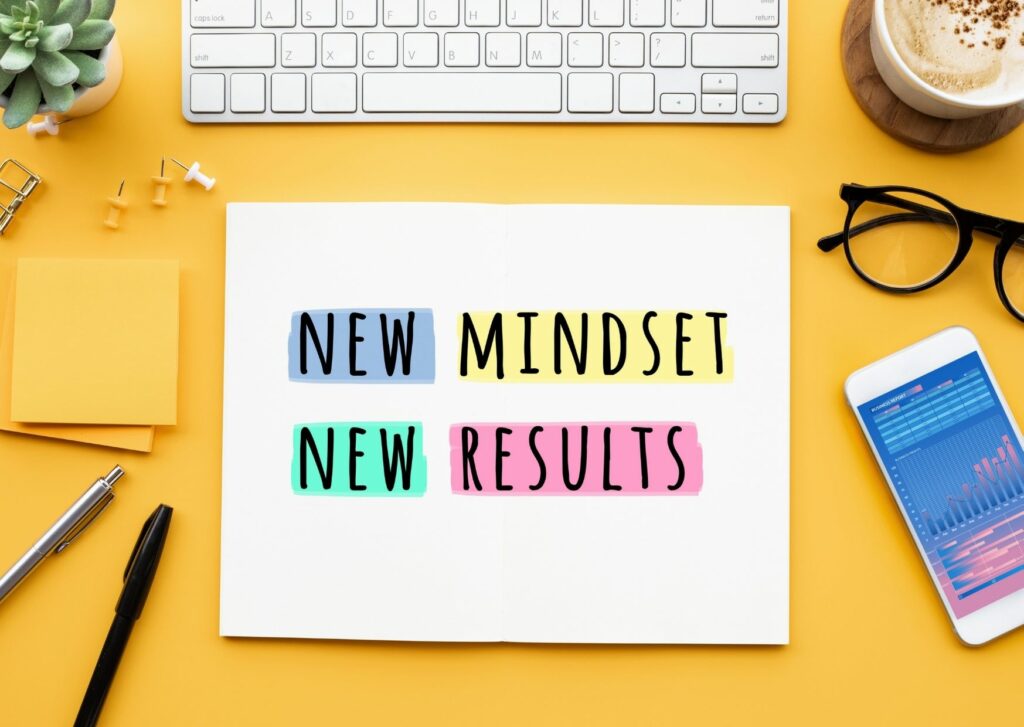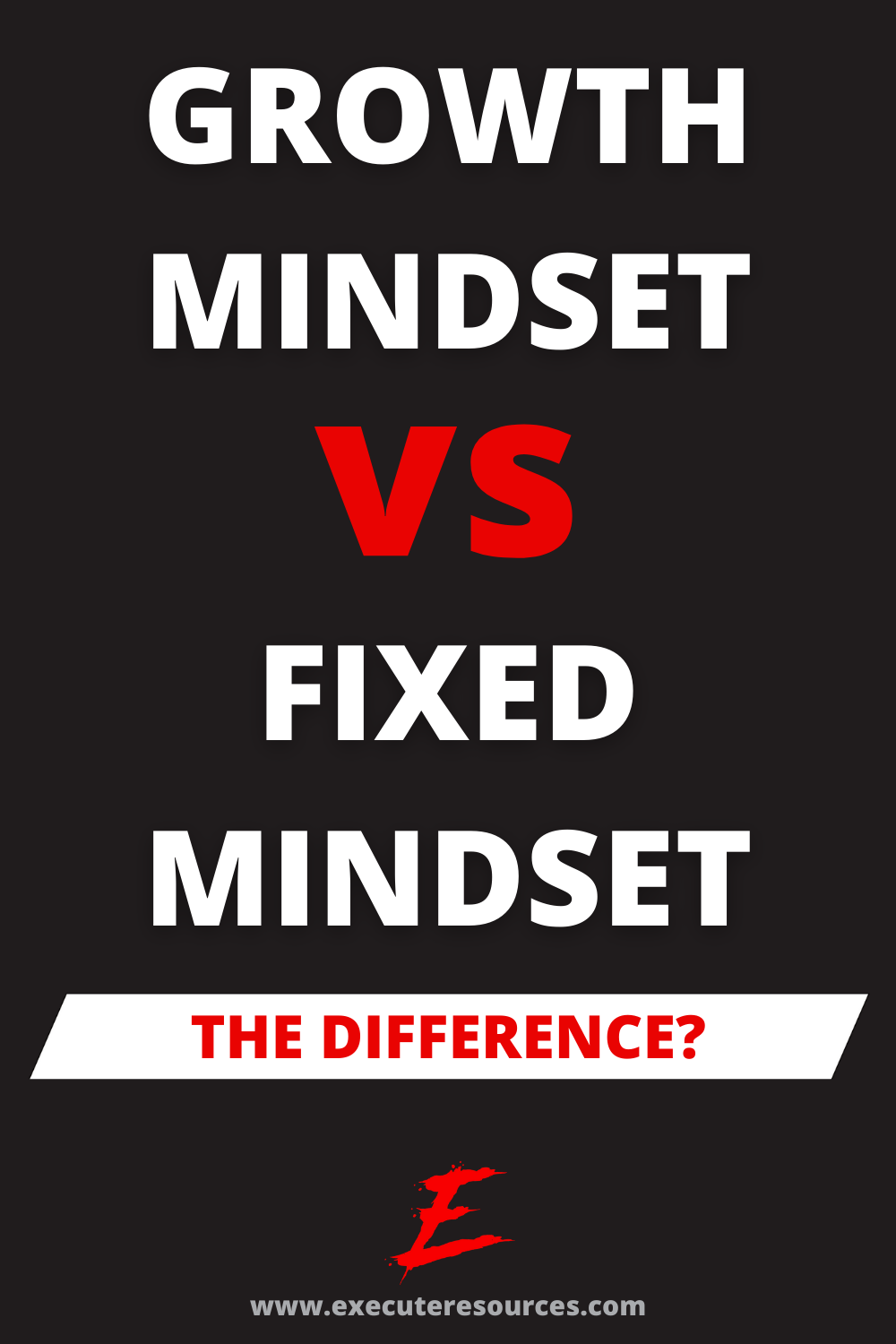Motivation
Growth Mindset vs Fixed Mindset: What Is The Difference?
Published
3 years agoon

Everyone says it. A growth mindset is everything.
You’ve probably heard it all before. A growth mindset opens so many more opportunities and pathways towards success than a fixed mindset. Without one, you are limiting your capabilities across multiple areas of life.
We’re not going to tell you any different. Perhaps you’ve never realised you have a fixed mindset however. And perhaps you are unaware of the possibilities of the growth mindset. And perhaps you haven’t thought about what your mindset is doing for you directly in the workplace, as well as how it effects your peers.
We manifest these mindsets from a very early age. Whichever one we end up with has a large influence towards our behaviour, our relationship with success and failure – professionally and personally – and ultimately our capacity for happiness.
Let’s start with what these mindsets are, so you can determine if you operate with one or the other. Or both.
Where did the mindset concept come from?
Over 30 years ago, Stanford professor Carol Dweck and her colleagues became interested in students’ attitudes surrounding failure. Some students were quick to rebound, while others became devastated by the smallest setbacks.
Through studying these behaviours, Dr Dweck came up with the fixed mindset and growth mindset which described the underlying beliefs people have about learning and intelligence. Those with a growth mindset who believed their abilities could be developed, consistently outperformed those with a fixed mindset who believed their abilities were fixed.
“No matter what your ability is, effort is what ignites that ability and turns it into accomplishment.”
– Dr Carol Dweck

What is a fixed mindset?
Anyone with a fixed mindset, believes their character, intelligence and creative abilities are fixed and cannot change. They are successful if they are able to use these given qualities to achieve great things from financial gain to genuine happiness. Upskilling or learning new things should not be required and they are expected to work to the best of their ability with their current skills and traits which cannot be improved. The concept itself indicates a mindset which remains stubborn and is resistant to basically any new idea or change in process.
Imagine working with someone with a fixed mindset for a moment. There would be a lot of conflict in the workplace, and teamwork would also be very challenging. Imagine working for someone with a fixed mindset. How would you feel if your ideas were always dismissed, and your role never changed? This could include opportunities for progression and a wider scope of expertise – which is an unlikely occurrence when your boss believes you can and should, only achieve the one thing you were hired to do.
What are the advantages of a fixed mindset?
Tackling the hard questions first, we’ll cut straight to it. There aren’t many. Today’s rapidly changing environment leaves little room for growth or success for someone with a fixed mindset.
One advantage is sexual orientation. This is because they are able to accept who they are and know it is who they are meant to be. Their own sexual preference will never be questioned. This goes for any loved ones of the individual who are hearing the news. They will support any orientation without hesitation.
Another benefit is aging. Fixed mind-setters accept they will age. They won’t fight it with drastic measures such as surgery, expensive serums and certain activities, consults and specialists. Having a fixed mindset towards aging can save a lot of time, money and emotional stress endured, and ultimately increase quality of life in these later years.
What are the disadvantages of a fixed mindset?
The first thing which comes to mind when we think of fixed mindsets are – they’re not changing. That’s because anyone with a fixed mindset is constrained by their beliefs and thoughts. They are either good or bad at something based on inherent nature.
Fixed mind-setters feel talents, abilities and intelligence are fixed and it’s who they are. These will not get better with time, persistence and effort. So why bother learning something new or attempting to grow a current skill they’ve already got?
With no desire to adapt or learn new things, these people run from error, criticism and feedback due to a sense of pride. They avoid challenges, give up easily and feel threatened by the success of others. A fixed mindset also means they’ll avoid new experiences with fears of failure – brought on with the belief they cannot improve. Failure translates to lack of intelligence and limited abilities.
As they are adamant their skills are as best as they can possibly be, those with a fixed mindset will seek others to reinforce their self-esteem. They remain outcome focused as results become their identity.

What is a growth mindset?
A growth mindset thrives on challenges, with freedom in thoughts and beliefs. They see failure as an opportunity for growth and broadening existing abilities. They take joy in the learning process. Seeking new information, forming new strategies and taking inspiration from others is what they love to do.
Growth mind-setters understand certain people have special talents and intelligence can vary from person to person however, these can also be developed and improved with effort and hard work. They will embrace difficulties and challenges, as it becomes a means to develop new skills and grow.
Imagine working with someone with a growth mindset. You could probably ask them to do anything and there would be an enthusiastic response followed by determination to do that task as best as possible. Imagine working for someone with a growth mindset. Could be fun right? Knowing your direct manager is open to change – especially change leading to growth – you would be able to approach them with anything as well as confront them when you are seeking further opportunities or a shift in roles.
What are the advantages of a growth mindset?
People with growth mindsets will always bring their best efforts to anything they do, striving for more stretching goals. Challenges become opportunities as they seek to improve by learning from whatever transpires. Growth mind-setters believe intelligence and talent is dynamic and ever improving and will persist in the face of setbacks. Because of this, research has demonstrated they have enhanced brain development across a wider range of tasks.
They embrace their weaknesses and use failure as an opportunity to grow through constructive criticism. The success of others will inspire them as they remain constantly motivated with higher performance levels. Having this mindset also means they remain focused on processes instead of end results.
What are the disadvantages of a growth mindset?
Both hard work and persistence are necessary to learn. However, this does not mean they are sufficient. Anyone with a growth mindset will continue to use the same efforts and processes to reach their learning goals, with no consideration towards the effectiveness of their strategy. To stick with it – regardless of whether it is working or not – may cause set-backs and missed opportunities when it comes to trying something different.
People with a growth mindset will also struggle to remain settled. Routines are hard to stick to, and they will always be seeking opportunities, challenges, learning experiences and feedback. When these things aren’t available to them it could affect them mentally, as the growth mindset thrives from well, growth!

In the workplace
With advantages and disadvantages for both mindsets, it’s clear anyone will be better off having a growth mindset. When we collaborate however, things may be different. Most work places will employ a combination of people with both fixed and growth mindsets. This opens up all sorts of channels for conflict as well as success, based on the flexibility of the leaders and the structure of the business.
Let’s see how the mindsets work together.
When Fixed Mindsets work together
In the workplace, fixed mindsets mean avoiding constructive conflicts and sticking to existing solutions, despite results indicating new ideas are required. Employees will not speak up, fearing they will not sound intelligent and refuse to take on any new challenges especially when it’s within a different field. When goals aren’t met, anyone with a fixed mindset will look to others for blame. When goals are met by others, there will be extreme jealousy.
However, a team of people with fixed mindsets may manage extraordinary things because of this alone. While change may be necessary for some workplaces, it can also be destructive. Fixed mindset Managers will continue to trade as usual, despite trends and other external factors which others with fixed mindsets will be drawn to. We’re talking employees and consumers.
For example, McDonald’s has been operating since 1955. In that time, there have been new burgers added to the menu almost weekly. These additions have been based on trends such as vegan burgers, spicy burgers and more. None of these have ever been as popular as the original Big Mac – which has never changed.
When Growth Mindsets work together
Imagine being in a room full of growth mind-setted people, where the purpose is to grow a business.
The ideas would be coming in at 100mph from all directions! And when the boss also has this mindset, it’s likely he will want to try every single one. Each idea raised will be pursued and persisted with, regardless of any consequences or it’s immediate effect. Before you know it, finances and resources will disappear with business yet to take off.
Of course, the opposite could also happen.
A combination of ideas could very well just work wonders and make the business. Moving forwards, each employee will find themselves being challenged as their tasks are varied and upskilling is provided to maintain job satisfaction.
Another danger will arise, as it becomes likely at some point each individual employee will be driven to start their own business. After all, its 2021.
For the boss with a growth mindset who is losing employees, this becomes yet another opportunity to develop the business. With each recruit comes new possibilities.
Everyone wins, right?
Do I need to change my fixed mindset?
Yes and no. What are your ambitions in life? Where are you now and what have you achieved? If you are lucky enough to have identified a skill you are great at and love, and are doing it as best as you can and as best as you will ever need, and are getting paid for it…..what else is there? A benefit of the fixed mindset, is how this in its entirety is enough for you. It’s all you need to be truly happy.
If you’re unhappy and yet to feel fulfillment, it may be worth considering changing your mindset. Some indicators may be experiencing boredom in your role, dreading going to work, avoiding feedback or criticism and insisting you can’t do anything else.
Imagine developing a growth mindset and believing you actually can do something else. And doing it!

How to shift from fixed to growth
You can’t. Sorry.
Of course, we are kidding! If you’re unhappy and operating with a fixed mindset, there’s a good chance shifting it will be a major life changer. There’s a few steps and it’s not easy, however the process is worth undertaking as soon as possible for the effect to follow when you need it most.
Switching over, you’ll realise a shift from self-doubt to potential for growth, from worrying about the outcomes to taking interest in the process, acting as a victim to becoming a creator and taking responsibility, and from fear of failures to learning through them.
Begin with telling yourself a different story. This means catching those moments where your fixed mindset is active and challenging it. Instead of listening to yourself think “I can’t do it,” switch it to “I can do it.” “This is hard,” becomes “I just don’t know yet.” Do this consistently and your mind will start to identify the cues with less effort required to switch your thinking.
Next you can set learning goals instead of performance goals, forcing yourself to focus on the process rather than the outcome. It’s much more achievable and satisfying to learn every day than to hit one massive goal at a predicted end date.
Our next task is challenging, but we know you can do it. Capitalise on your failures. It happened, so here’s an opportunity to review why, and correct the mistakes. Set your mind to look at failures as a means to learn and grow instead of considering them as a limitation of your abilities.

Another key to shifting is remaining practical with your challenges. You know your strengths and limitations so work to them and ensure there is always room for progression.
Lastly, be consistent and flexible. Shifting won’t happen overnight. It requires practice and commitment. When you are tempted to revert back, remind yourself of why you want to shift and how many more opportunities will become available if you do.
What now? It’s time to shift that mindset! Not just for yourself, but for the people surrounding you in the workplace and at home – and ultimately for a much better life!
Focus on the end goal, be persistent and practice practice practice!

Danni Shafik is a viral content writer for Execute Digital. She began her career as a journalist with a quick transition into writing as she has always told compelling stories throughout childhood and beyond. Danni loves creating viral content with varying topics, angles and audiences and endless opportunities to think outside the box for maximum engagement. Outside of writing, Danni enjoys reading, the beach, live music and exploring the great outdoors.

